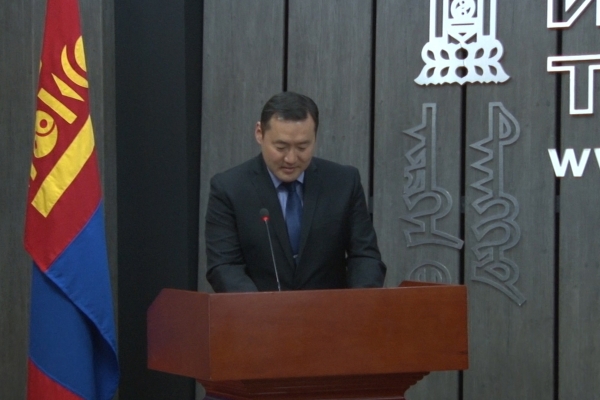CONFERENCE ON “SOLUTIONS TO AIR POLLUTION IN GER AREAS” TAKES PLACE
At the initiative of the President of Mongolia, the National Forum on Reduction of Air Pollution is expected on October 23 in State House. The Forum is jointly organized by the Office of the President, the National Committee on Air Pollution Reduction, the Ministry of Environment and Tourism, the Ministry of Health, the Ministry of Energy, the Ministry of Construction and Urban Development, the Office of the Governor of Ulaanbaatar and the World Health Organization (WHO).
In anticipation of the national forum, three side conferences will be held. The first conference was themed “Air Pollution in Ger Areas [of Ulaanbaatar] and Solutions”, organized in the Citizens’ Chamber under the President on October 18.
The conference was moderated by Presidential Advisor in charge of Environmental and urban and rural development policy and air pollution D.Purevdavaa and Vice Chairman of the Office of the President B.Saruul.
Mayor of Ulaanbaatar S.Batbold also attended the conference. He said in his speech that Ulaanbaatar produces 65.4 percent of the national GDP and accommodates 70 percent of total entities and 95 percent of universities. He wanted to stress the curious fact that, despite all of the above, only 29 percent of schools and kindergartens are located in the capital city that bears about 80 percent of the national work load. Smog coming from Ger Areas account for 80 percent of the city’s air pollution, the Mayor said, motor vehicles, for 10 percent, thermal power plants and low pressure stoves, for 6 percent and dust particles and soil pollution, for 4 percent.
The Mayor told the gathered that the Municipality has been taking actions, including limitation of migration into the city, authorizing marketing of standard stoves, zeroing nighttime electricity tariffs in Ger Areas, endorsing use of electric heater and re-structuring of Ger Areas.
Other presentations discussed the current situation of air pollution coming from Ger Areas, current decisions and steps being taken to reduce air pollution, construction for Ger Area re-structuring, impact of air pollution on maternal and infant health, power tariff alleviation for Ger Area households and citizens’ participation in reduction of air pollution.

